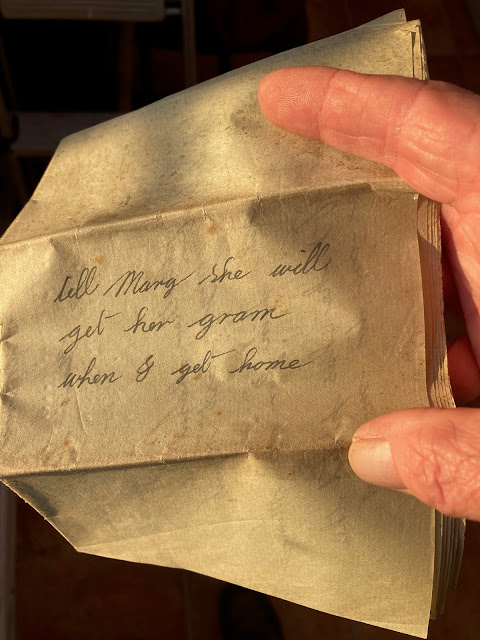Traces
I've written about time quite a lot over the past year, either in plain reflection or in verse: I feel a connection to my past through photographs and documents I hold in trust for the family; a small foothold in history for those that are following - working-class history, as I've said before, is rarely written first-hand. Our traces tend to be the archaeological by-products of history somehow not ours: the ephemera of someone else's lineage.
I've been looking through the small collection of family documents - tiny - I have in my custodianship; and lit upon a handful of letters from my Dad's eldest brother to his family, whilst he was serving in the Army at the end of the Second World War in North Africa. My uncle was an engineer, as was his next sibling Arthur (I'll come to his story in another post) and was with REME just at the cusp of the War's end.
One letter I've got is from Sam to the family of 25th February 1946. Things were kicking off between the Egyptians and the present British troops still garrisoned there after the end of the war. Ordinary British squaddies like my uncle were caught up in a political situation that they weren't there for in the first place, ostracized, spat at, and occasionally bombed for just being there at the behest of politicians and government.
I'll put more of his correspondence out at some point, but one paragraph from this particular letter made me start: 'Tell Ann [my aunt] that (if) my mail should stop, not to worry, or you Mom, Arthur looked after himself, and if I can do the same, if all goes well I expect to be out for November, this year.' I can't tell you how poignant this small exchange is for me: it's a spotlight on the youth of loved family members whom I knew only as adults in middle age. It's endlessly curious to me that so many of us only get to know the reality of our forbears late in our own lives.




Comments
Post a Comment